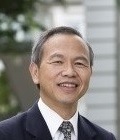Synopsis
The Fourth Industrial Revolution (4IR) entails the convergence of various technologies that are currently developed, such as bio-, nano-, and material technologies, artificial intelligence, big data, internet of things and 3D printing into new applications, domains, and business models. This makes the management of intellectual property and knowledge very complex.
The European Patent Office and the Handelsblatt Research Institute have recently charted the ‘inventions behind the digital transformation’. With a growth of 54% in terms of patent applications in the last three years, the scientific progress in 4IR technologies is growing rapidly. However, since patent applications do not yet lead to the uptake of technology in the market, the effects of patenting activity on actual innovation will become visible only in the years to come. What is striking about the data is that only twenty-five companies are responsible for 50% of the 4IR applications at the EPO between 2011 and 2016, with the USA, Europe and Japan leading, and with the Republic of Korea and China rapidly catching up.
The international intellectual property (IP) system provides a strong framework for the development of a globalized competitive market for intellectual and industrial creativity.
Due to weak enforcement and lack of rule of law, however, the emphasis of policy makers has consistently and justifiably focussed on the strengthening of rights for rightholders.
However, this singular focus has been detrimental to inclusive global economic development, coherent policies on limitations and exceptions to the benefit of users and private individuals. Furthermore, the distribution of technology through market forces, and the related technology transfer, has been shown to be too slow to meet the challenges that developing economies (e.g. access to essential pharmaceuticals, orphan and new drugs, etc.) and the global community (e.g. food security, climate change, etc.) face.
Increasingly there is a concern that the WTO-dominated international IP system is not equipped to meet the demands of inclusive innovation. This talk addresses this issue and asks how trust in the international trade system incorporating IP can be restored.
Speaker

Anselm Kamperman SANDERS (1968) is Professor of Intellectual Property Law, Director of the Advanced Masters Intellectual Property Law and Knowledge Management (IPKM LL.M/MSc), and Academic Director of the Institute for Globalization and International Regulation (IGIR) at Maastricht University, the Netherlands.
He acts as Academic Co-director of the Annual Intellectual Property Law School and IP Seminar of the Institute for European Studies of Macau (IEEM), Macau SAR, China and is Adjunct Professor at Jinan University Law School, Guangzhou, China.
Anselm holds a Ph.D. from the Centre for Commercial Law Studies, Queen Mary, University of London, where he worked as a Marie Curie Fellow before joining Maastricht University in 1995. He is a member of the European Commission expert group on development and implications of patent law in the field of biotechnology and genetic engineering. For the UN he is member of the expert group for the World Economic and Social Survey 2018.
He is the coordinator of the European IP Institutes Network-Innovation Society, a Horizon 2020 Marie Skłodowska Curie ITN-EJD Action (www.eipin-innovationsociety.org).
Chair

Kung-Chung LIU holds an LL.B. and LL.M. from National Taiwan University and a Doctorate from the Ludwig Maximilian Universitaet (University of Munich). He was a Research Fellow at Academia Sinica, Taiwan until 2017. In 2003, he was a Visiting Professor at the Faculty of Law of the National University of Singapore and a Visiting Senior Research Fellow for the IP Academy of Singapore. Professor Liu has served as one of the founding Commissioners of the National Communications Commission in Taiwan between 2006 and 2007. In 2014-15, he was a Visiting Professor at the School of Law, Singapore Management University, and the Founding Director of the Applied Research Centre for Intellectual Assets and the Law in Asia (ARCIALA). In addition, he has been co-appointed Professor at the Renmin University, China (2017), and the Graduate Institute of Technology, Innovation & Intellectual Property Management, National Chengchi University, Taiwan (since 2010).
This event is by invitation only.
Last updated on 01 Feb 2018 .